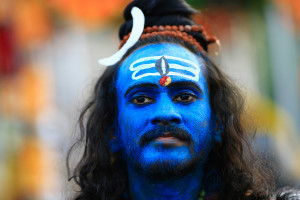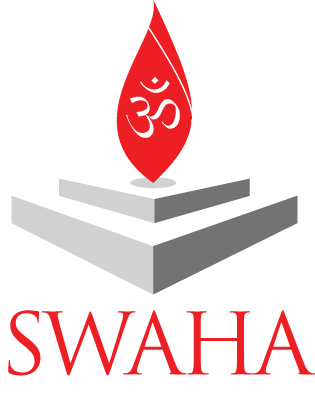 We all get the snares, the looks and the comments that further denigrate our position on individual social networks, our position in the staff at our jobs, our place in society and the many functions we operate in the family and the wider community. We are judged on a superficial basis on our contributions or lack of it and accepted or rejected based on whether we are needed or not. A growing trend, borrowed from the financial instabilities and economic nuances pervading our society today has found its place in the classification and discrimination of pockets of people and individuals functioning at minimum or maximum capacities determined by a percentage for easier distinctions. Whether its offensive or not carries this discussion too deep into the nature of humanism and the stripping away of our basic human rights to be loved, respected and accepted, regardless, the question pops up: what does it mean to be 99% Hindu? Are you? Don’t be worried if it takes you a while to ascertain an adequate answer.
We all get the snares, the looks and the comments that further denigrate our position on individual social networks, our position in the staff at our jobs, our place in society and the many functions we operate in the family and the wider community. We are judged on a superficial basis on our contributions or lack of it and accepted or rejected based on whether we are needed or not. A growing trend, borrowed from the financial instabilities and economic nuances pervading our society today has found its place in the classification and discrimination of pockets of people and individuals functioning at minimum or maximum capacities determined by a percentage for easier distinctions. Whether its offensive or not carries this discussion too deep into the nature of humanism and the stripping away of our basic human rights to be loved, respected and accepted, regardless, the question pops up: what does it mean to be 99% Hindu? Are you? Don’t be worried if it takes you a while to ascertain an adequate answer.
Believe or not, religion has continued to be the foremost concern for determining the “amount” of love one has for God and his teachings. Needless to say, our society has become an open competitive market, providing an over supply of religious pundits, priests and religious leaders to feed the growing demand for the new, young, trending and even ‘fashionable,” by millions of Hindus worldwide to appease this religious sweet tooth. No longer is spirituality a concern as rights and rituals have become the proverbial rope tied around naïve followers, slowly strangling them to death. Tulsidaas classifies these types of people as the living-dead. They cannot change nor see the need to. Such people have been beaten heavily by the stick of ignorance and fester in small pockets around the world contaminating those who wish to be part of the wider purpose and ensure the positive upliftment of a society’s morals and value system.
Classifying yourself in a percentile range disallows progress. It has been made absolutely clear that the practice of Hinduism is not how many weeks or months in a year one attends temple or how much puja or yagyas one performs. Society will always be fooled by one who appears to pray a lot but enjoys little to no rewards. Remember the story of those who gave thousands be it cows or in excess, from Dakshaprajapati to Nachiketan’s father and they, like others, met terrible fates at the end of their ‘sacrifices.’
Absolutely no apologies for it, Hinduism needs a different kind of change at its core. The type of change that incorporates enlightened ritualism; spirituality, philosophy and relevant literature as its guiding principles and only then can society rise from these worldwide sinkholes.
Pt. Varistha Persad
